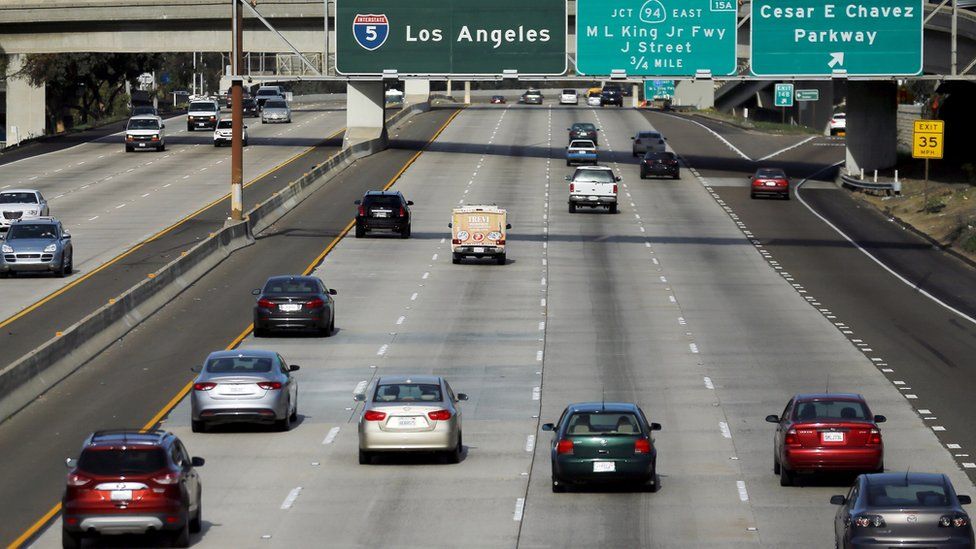US lawmakers approve $1tn in infrastructure spending

The US Congress has passed a landmark $1tn (£741bn) infrastructure spending package, delivering a major domestic win to President Joe Biden.
Negotiations over the sweeping public works bill - which passed the House of Representatives with 228-206 vote - created a bitter split among Democrats.
Meanwhile the House is moving forward with a more ambitious social spending bill favoured by liberal lawmakers.
The infrastructure package now heads to Mr Biden's desk to be signed into law.
Billed as a "once-in-a-generation" spending measure, the infrastructure legislation proposes $550bn in direct federal expenditure to upgrade highways, roads and bridges, and to modernise city transit systems and passenger rail networks.
The agreement also sets aside funding for clean energy, clean drinking water and high speed internet.
An infrastructure bill to fix more than US bridges
Biden sees rebuilt roads as route to rout racism
Three months ago, 19 Republicans joined with Democrats to approve the legislation in the evenly split Senate, a rare bipartisan feat in an increasingly divided Congress.
On Friday the bill passed the House with support from 13 Republicans, too. But more liberal lawmakers balked at its final version, complaining that key liberal policies had been dropped in exchange for the bipartisan win.
Six Democrats voted against it, including Alexandria Ocasio-Cortez of New York and Ilhan Omar of Minnesota. The group of six - dubbed The Squad - are among the most left-wing and progressive members of the House.
Members of the Congressional Progressive Caucus pledged they would not support the infrastructure bill until they had voted on a separate social welfare bill that allocates $1.75tn for healthcare, education and climate change initiatives.
Democrats control both chambers of Congress by very slim majorities, so near-universal support would be required for the bill's passage.
It is slated to pass through a procedural measure known as budget reconciliation, meaning it requires only a simple majority in each chamber to pass.
But centrist Democrats continue to object to the size and scope of the sprawling bill. They are insisting on seeing full accounting of its economic impacts.
On Friday House leaders brokered a compromise, insisting on a vote on the infrastructure bill, accompanied by a procedural vote to start debate on the social spending bill.
"Welcome to my world. This is the Democratic Party," House Speaker Nancy Pelosi told reporters earlier that day. "We are not a lockstep party."
Compiling an independent assessment of the social spending bill's full cost is expected to take at least two weeks, although Democratic leaders have said they remain confident the bill will be passed before the Thanksgiving holiday at the end of November.
